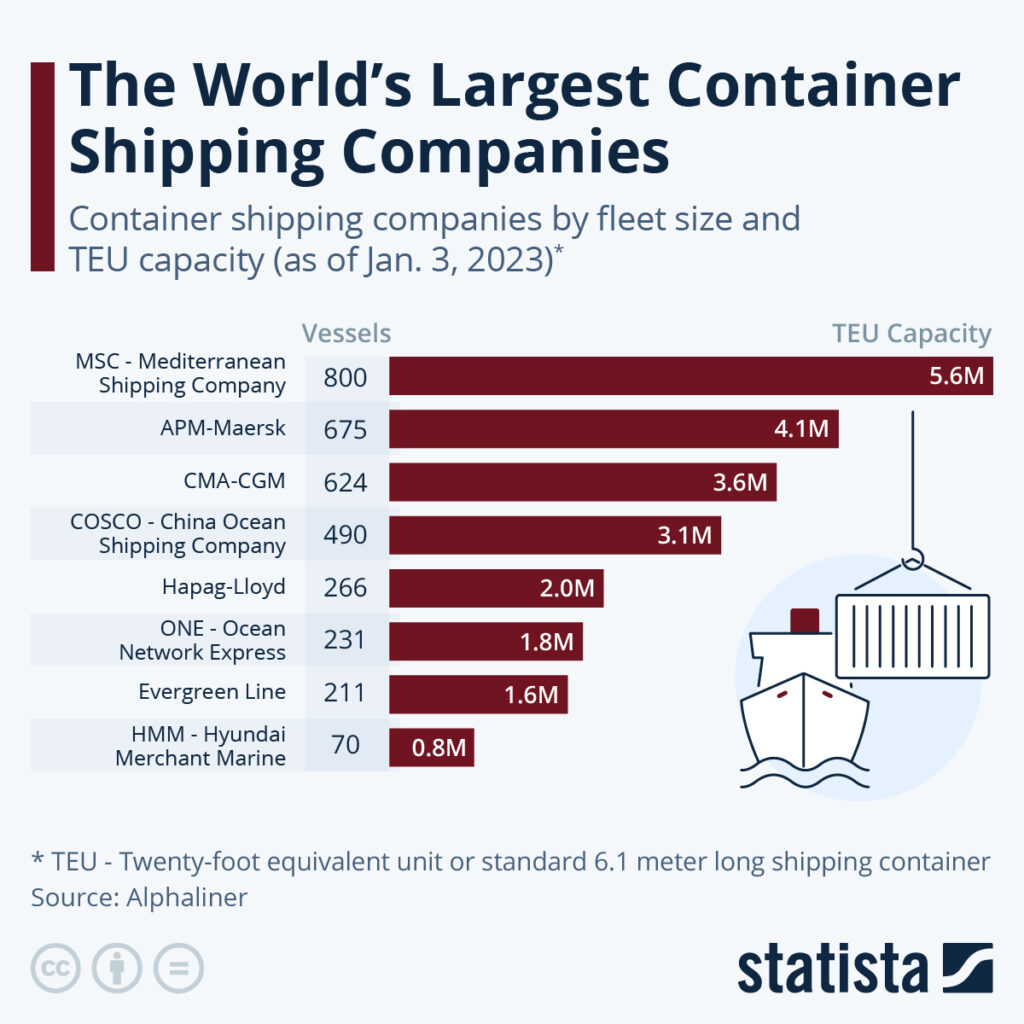Taps Coogan – January 3rd, 2024
Enjoy The Sounding Line? Click here to subscribe for free.
The following article is reposted from Statista.com:

The world’s second-biggest container shipping line Maersk said yesterday that it had indefinitely suspended use of Red Sea routes. The announcement came on the heels of renewed attacks by Yemeni Houthi rebels on container ships in the Bab-el-Mandeb straight. Missiles were reportedly fired at a French-owned container ship Tuesday after U.S. military forces had intervened in an attack on a Maersk vessel Sunday. U.S. Central Command said that yesterday’s attack had been the 24th since Nov. 19. Monday also saw an Iranian warship enter the Red Sea.
Maersk had initially said that shipping in the Red Sea – which includes the Suez Canal – was once more suspended for 48 hours before it axed the route until further notice. More major shipper, among them MSC, Hapag-Lloyd and Evergreen as well as energy companies BP and Equinor, have discontinued the route. While Hapag-Lloyd said it wouldn’t use it at least until Jan. 9, MSC and Evergreen did not comment on the length of their suspensions. CMA CGM said it was continuing to reroute “some ships”. COSCO was also reducing traffic there, according to Crisis24, who also called MSC’s suspension “partial”.
Whatever the exact details, the halts and reductions affect a majority of the world’s largest container shipping lines – as seen in data by Alphaliner – and therefore have the potential to seriously disrupt cargo traffic at one of the world’s major maritime chokepoints that sees between a quarter to a third of worldwide maritime-traded goods pass through it, depending on the analysis. According to S&P Global, tonnage transiting the Bab-el-Mandeb Strait at the entrance to the Red Sea has halved since the beginning of December. The passage is also an important one for oil shipments which is already affecting the global oil price.
Vessels now rerouted circumvent the Suez Canal by navigating around the Cape of Good Hope on the Southern tip of Africa. For ships traveling between Asia and Europe, that involves a 5,500-mile diversion which takes seven to 10 days longer and a much higher fuel bill.
Would you like to be notified when we publish a new article on The Sounding Line? Click here to subscribe for free.

